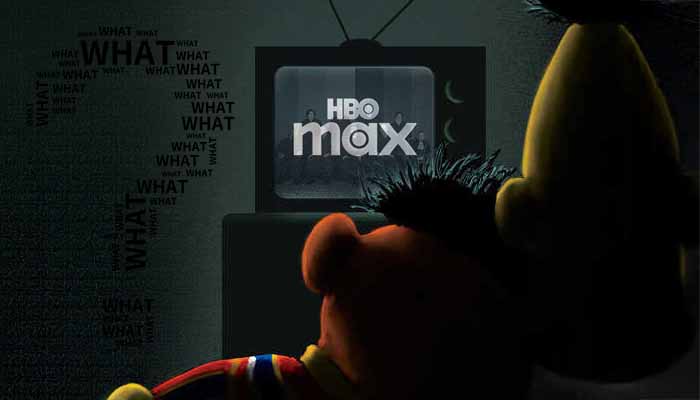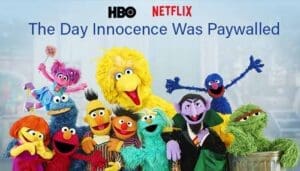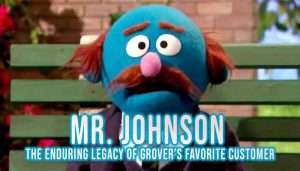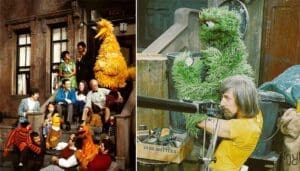The Day the Laughter (and 200 Episodes) Died a Little
Picture this: you, a grown adult, finally ready to introduce your niece, nephew, or perhaps your own jaded soul to the pure, unadulterated joy of classic Sesame Street. You fire up HBO Max (or is it just ‘Max’ this week? Did they add the ‘HBO’ back yet? Send snacks and a flowchart ). You search. And… something’s missing. A LOT is missing. Around August 19, 2022, HBO Max, in a move that can only be described as “peak 2020s streaming chaos,” quietly removed about 200 older episodes of Sesame Street. These weren’t just any episodes; these were the classics, the foundational felt, the OGs of educational television.
The fact that these episodes vanished “quietly” speaks volumes, suggesting either a corporate underestimation of the public’s devotion to felt-based pedagogy or a deliberate, if naive, attempt to sidestep the inevitable digital pitchforks. Did the executives in their glass towers genuinely believe that legions of fans, who can spot a new Elmo giggle at fifty paces, wouldn’t notice entire seasons disappearing into the digital ether? This apparent disconnect between boardroom strategy and living room reality is where much of the absurdity, and indeed the humor, of the situation lies. It’s like finding out your childhood teddy bear was repossessed for back taxes, and the repo men tried to sneak it out in the dead of night. This wasn’t just about missing content; it was about the audacity, the sheer gall of messing with a cultural touchstone that taught generations how to count, share, and occasionally, how to deal with a perpetually grouchy monster living in a trash can.
This vanishing act contributes to a broader, unsettling trend in the streaming world: the erosion of trust in digital libraries. If a show as iconic and beloved as Sesame Street can have significant chunks of its history unceremoniously yoinked, what hope is there for lesser-known gems or even moderately popular shows? The initial allure of streaming services was often the promise of a vast, ever-expanding archive – everything you could want, right at your fingertips. Actions like the Sesame Street purge, however, transform that promise into something more akin to a magical, disappearing buffet: enjoy it while it lasts, because you never know which dish (or entire season) will be gone by your next visit.
The Official Story: “It’s Not You, Elmo, It’s Our Overdraft Fees”
So, what was the official line from the corporate overlords at Warner Bros. Discovery for this Muppet massacre? According to reports, it was all part of the company’s “belt-tightening moves, aimed at reducing streaming-content payment obligations”. In layman’s terms, the new bosses looked at their post-merger bank account, saw the figures associated with licensing fees for all those sunny days, and decided some of those days needed to be… well, less financially burdensome. It’s the kind of cold, hard financial jargon that strips away any sentimentality, reducing decades of educational content and cherished childhood memories to mere line items on a spreadsheet.
Sesame Street wasn’t uniquely targeted for being “too educational” or “insufficiently gritty for the HBO brand”; it was merely one of many shows swept up in a larger content purge as Warner Bros. Discovery embarked on an “ambitious plan to winnow down $3 billion (with a B) in debt”. Imagine a board meeting where the dialogue might have gone something like: “Right, team, how do we save a few bucks? I know! Those puppets! They’re always singing about letters and numbers. How much can that possibly be worth? Seasons 2-4, 6, and a huge swathe from 8 to 35 of Sesame Street? Axed! We’ll keep a smattering of the early stuff for appearances, and the newer seasons because, you know, current contracts” (paraphrasing season details from ).
Warner Bros. Discovery issued a statement explaining they would be “making changes to the content offering available on both HBO Max and discovery+” as they “work toward bringing our content catalogs together under one platform”. This explanation is akin to saying one is “bringing their sock drawer together” by enthusiastically yeeting half its contents out the nearest window. The merger of WarnerMedia and Discovery, Inc. created a colossal media entity, and such consolidations frequently lead to aggressive cost-cutting measures and strategic realignments as the new company attempts to demonstrate synergy and justify the immense cost of the merger. Sesame Street, in this context, became collateral damage in a much larger game of corporate chess.
While these cost-cutting measures might offer immediate financial relief, the long-term strategic wisdom is debatable. Aggressively culling a streaming library, particularly of iconic and beloved content, risks damaging brand reputation and eroding subscriber loyalty. The negative press and fan outcry following the Sesame Street removal illustrate this point vividly. One must wonder if the relatively modest savings on licensing fees for decades-old children’s programming are worth the public relations hit and the unsettling message it sends to both creators and consumers about the stability and value of content on the platform. It raises the question of whether such moves are penny-wise but pound-foolish in the long run.
Unofficial Speculation: Was Cookie Monster Running a Tab? Or Did Oscar Finally Offend the Wrong Executive?
Okay, so “licensing fees” and “strategic realignment” are the bland, corporate-approved explanations. But let’s be honest, where’s the fun in that? The internet, in its infinite wisdom, naturally concocted far more entertaining, if entirely unsubstantiated, theories. Let’s dive into the real reasons these Muppets got the boot, according to absolutely no one official but definitely whispered in the darker, felt-lined alleys of Sesame Street.
Perhaps the blame lies with Cookie Monster. Sources (again, entirely fabricated for comedic effect) might suggest his on-set cookie demands were single-handedly bankrupting the craft services budget. His iconic “Me want COOOKIE!” could have been misinterpreted by the finance department as “Me want fiscally irresponsible expenditure of company resources!”
Then there’s Oscar the Grouch. Rumor has it he refused to participate in a mandatory corporate synergy retreat, allegedly calling the planned trust falls “a deplorable display of unwarranted optimism and a flagrant violation of my personal space”. Plus, his trash can was probably violating seventeen newly discovered health and safety codes that Warner Bros. Discovery’s legal team unearthed during a particularly zealous due diligence sweep.
What about Big Bird? At a towering 8’2″ , his dressing room requirements alone must have been astronomical. And his penchant for asking “Why?” during high-level strategy meetings? Probably not a good look for a company laser-focused on “streamlining operations” and “optimizing efficiency.”
And let’s not forget The Count. Could it be that he meticulously counted the exact number of executives who genuinely understood the HBO brand versus those who just saw it as another content silo, and the resulting number was… alarmingly low? Ah-ah-ah!.
To add another layer of “what if” absurdity, perhaps in the chaotic flurry of the content cull, they thought they were targeting that infamous, genuinely “too scary” Wicked Witch of the West episode from 1976 , or the segments featuring Don Music, who was reportedly pulled because children started imitating his habit of banging his head on the piano in frustration. Maybe an overzealous intern was tasked with removing “problematic” old content and just… overshot the mark by about 190-something episodes. “Oops, my finger slipped on the delete key… for several entire seasons.”
The deep-seated nostalgia for these characters makes the idea of them being “fired” for such silly, character-consistent reasons both funny and a little bit heartbreaking. The humor works because these personalities are so ingrained in the collective consciousness. The very notion of attributing complex, often petty, human motivations to these beloved Muppets for their “removal” allows for a satirical jab at the often opaque and seemingly arbitrary nature of real-world corporate decisions. It makes the abstract concept of “reducing streaming-content payment obligations” more tangible and comically absurd.
Here’s a speculative breakdown of the real reasons, according to our highly unreliable sources on The Street:
| Muppet | Alleged “Offense” | Our Guess at the Corporate Translation |
|---|---|---|
| Cookie Monster | “Unsustainable cookie consumption leading to excessive crumb-related overhead and potential pest issues.” | “High non-essential caloric expenditure; facilities maintenance risk.” |
| Oscar the Grouch | “Refusal to rebrand trash can as ‘minimalist urban living pod’; general lack of ‘synergistic enthusiasm’.” | “Resistance to corporate rebranding initiatives; negative team morale.” |
| Big Bird | “Nest declared a ‘non-performing real estate asset’; incessant ‘Why?’ questions during efficiency briefings.” | “Suboptimal asset utilization; questioning strategic directives.” |
| The Count von Count | “Accused of leaking the exact number of planned episode cuts. Ah-ah-ah!” | “Unauthorized dissemination of confidential restructuring data.” |
Export to Sheets
The People vs. Warner Bros. Discovery: Outrage, Memes, and a Million Cranky Oscars
The internet, predictably, did not take this news lying down. It was as if someone had announced that puppies were now “being strategically de-prioritized for enhanced shareholder value.” The collective digital gasp was followed by a wave of outrage, memes, and a general sense of “are you kidding me?”. Fan reactions ranged from “super upsetting” to descriptions of the move as a “bloodbath” in the context of Sesame Street. As one commentator aptly put it, fans were “as grouchy as Oscar, as frustrated as a starving Cookie Monster, as fuming as that meme where Bert’s got that scrunchy angry face”.
The comparisons drawn were telling. One user likened the removal to “book banning in Texas,” arguing that Sesame Street teaches “respect, tolerance, acceptance, that everyone is equal no matter what their religion, skin color, sexual orientation etc.”. Suddenly, Elmo wasn’t just a furry red monster; he was a (currently unavailable) champion of enlightenment. This sentiment underscored a deeper feeling that Sesame Street “should never have been controlled by corporations trying to appeal to stockholders. It was always a public good above all”. The intensity of these reactions highlights Sesame Street‘s unique position not merely as a television program, but as a cultural institution and a repository of positive societal values. To many, meddling with it felt like more than just a programming decision; it was perceived as a slight against those very values.
Of course, where there’s outrage, there’s humor. The meme that practically wrote itself was a play on the iconic theme song: “You: Can you tell me how to get, how to get to Sesame Street? HBO Max: No”. Social media became a platform for this democratized discontent, allowing fans to share their frustration and bond over their collective bewilderment. These jokes and memes served as a form of public coping mechanism and a surprisingly effective protest. While some tried to soothe the masses by pointing out that many episodes remained on the platform or were available elsewhere like PBS Kids and YouTube , for those whose specific cherished memory of a vintage Grover sketch was now locked away in the HBO Max vault, it was cold comfort indeed.
The Tax Man Cometh (Maybe?): A Brief, Comedic Detour into Corporate Arcana
Now, if “slashing licensing fees” wasn’t a sufficiently Byzantine explanation for you, allow us to introduce another shadowy figure often lurking in the wings when streaming content mysteriously vanishes: The Tax Write-Off. It’s a concept that sounds like it was cooked up in the same backroom where they decide which streaming service gets which Spider-Man movie this month.
The basic, and deeply absurd, idea is that companies can sometimes remove content – even completed or nearly completed projects – from their platforms and, through complex accounting wizardry, declare it a loss, thereby reducing their tax burden. It’s the corporate equivalent of donating that truly hideous sweater your Aunt Mildred knitted for you to charity: you get rid of something you don’t particularly want (or can no longer monetize effectively), and you get a little something back from Uncle Sam. Except, in this scenario, the “hideous sweater” can be a $90 million Batgirl movie or, hypothetically, a few hundred episodes featuring a lovable, 8-foot-tall yellow bird.
Warner Bros. Discovery has certainly utilized this strategy with other, higher-profile projects. The nearly completed Batgirl film was famously shelved for a reported tax write-down, as was the Looney Tunes feature Coyote vs. Acme. While there’s been no official confirmation that the 200 Sesame Street episodes were specifically removed as part of such a tax maneuver (the stated reason was to avoid ongoing licensing fees ), the company’s track record makes it a tantalizing, if cynical, possibility. It adds another layer of “Are you kidding me?!” to the entire saga. Were these classic episodes a casualty of creative accounting? We may never definitively know, but the very plausibility highlights a system where artistic creations can be reduced to mere financial instruments. This “nothing is sacred” approach in the streaming era suggests that content is increasingly treated as a disposable commodity, a bleak but also darkly comedic prospect for an industry ostensibly built on creativity and entertainment.
So, Where Did Our Sunny Days Go? (And Will They Ever Come Back to This Specific Streaming Address?)
When the dust settled, what was the actual damage to Sesame Street‘s presence on HBO Max? The platform went from hosting approximately 650 episodes to a reduced catalog of 456. The cull hit classic seasons particularly hard, with significant portions of Seasons 2-4, Season 6, and many episodes from the span between Season 8 and 35 disappearing. However, a selection from Seasons 1, 5, and 7, along with the more recent Seasons 39-52, largely remained. So, if your most cherished Sesame Street memory involved, say, a very specific, obscure sketch from Season 17 featuring Grover’s disastrous attempts at being a waiter, you might have found yourself out of luck on Max. But hey, at least you could still see Elmo… a lot of Elmo.
It’s crucial to remember that this move didn’t mean Sesame Street itself was “cancelled.” Sesame Workshop, the non-profit organization behind the show, owns Sesame Street; HBO/Max was merely a distributor, holding first-run rights for new episodes since 2015 and hosting a library of older content. This wasn’t HBO delivering a pink slip to Big Bird; it was more akin to them deciding to sublet significantly less of his rather extensive apartment. The culling of these 200 classic episodes was, perhaps, a grim hors d’oeuvre to the main course served later, when Warner Bros. Discovery announced it would not be renewing its deal to fund new episodes of Sesame Street beyond 2025, citing a strategic shift towards content for “adults and families” where new Sesame Street episodes were “not as core to our strategy”.
For those desperately seeking their fix of classic Muppet moments, all was not entirely lost. Select episodes of Sesame Street continue to be available on PBS Kids and the show’s official YouTube channel. However, for completists and nostalgia-hunters, HBO Max had briefly represented a tantalizing hope – “the only place where we could ever view these episodes” in such a broad collection, as one fan site lamented. The removal diminished the ease of access to this historical archive, contributing to the common streaming-era frustration of content fragmentation. The dream of a comprehensive, easily accessible digital archive for Sesame Street on that particular platform took a significant hit, redefining the streaming “archive” as something more curated, temporary, and subject to the capricious winds of corporate finance rather than a stable repository for cultural heritage.
Conclusion: Today’s Episode Was Brought to You by the Letter ‘C’ for Capitalism (and ‘S’ for Sigh)
So, why did 200 sunny days on Sesame Street suddenly get cloudy on HBO Max? The answer, my friends, is not blowing in the wind; it’s meticulously detailed on a balance sheet. It’s the age-old narrative: art, nostalgia, and childhood innocence versus the almighty dollar. And the dollar, in this particular instance, arrived with a rather large, unceremonious eviction notice. As filmmaker Marilyn Agrelo, director of a Sesame Street documentary, lamented in a broader context about the show’s move to HBO, “We lose the purity of a message that is intended to help society, not just to make money”. This incident is a stark illustration of that very conflict.
It seems even the friendliest, most educational street in the world isn’t immune to the harsh realities of corporate mergers, evolving content strategies, and executives who might genuinely believe “The Count” is just their Chief Financial Officer giving a particularly enthusiastic quarterly report. The decision fits into a larger pattern under Warner Bros. Discovery CEO David Zaslav, who has gained a reputation for decisive, often controversial, cost-cutting measures, including the shelving of nearly completed films and the abrupt removal of shows from streaming platforms.
What can the average, felt-loving citizen do? Perhaps start a letter-writing campaign… addressed to a giant yellow bird, care of an increasingly complex and ever-shifting media landscape. Or maybe we just clutch our remaining Elmo plushies a little tighter and whisper, “They can take our episodes, but they’ll never take our ability to count to ten… we think. Unless that becomes a premium add-on.”
And so, we bid a confused, slightly miffed adieu to those 200 episodes, hoping they find a new, welcoming home on some other, less financially fraught digital street. This particular blog post was brought to you by the letters I, R, O, N, Y, and the ever-increasing number of streaming services you’ll eventually need to subscribe to just to piece together the scattered fragments of your childhood.




